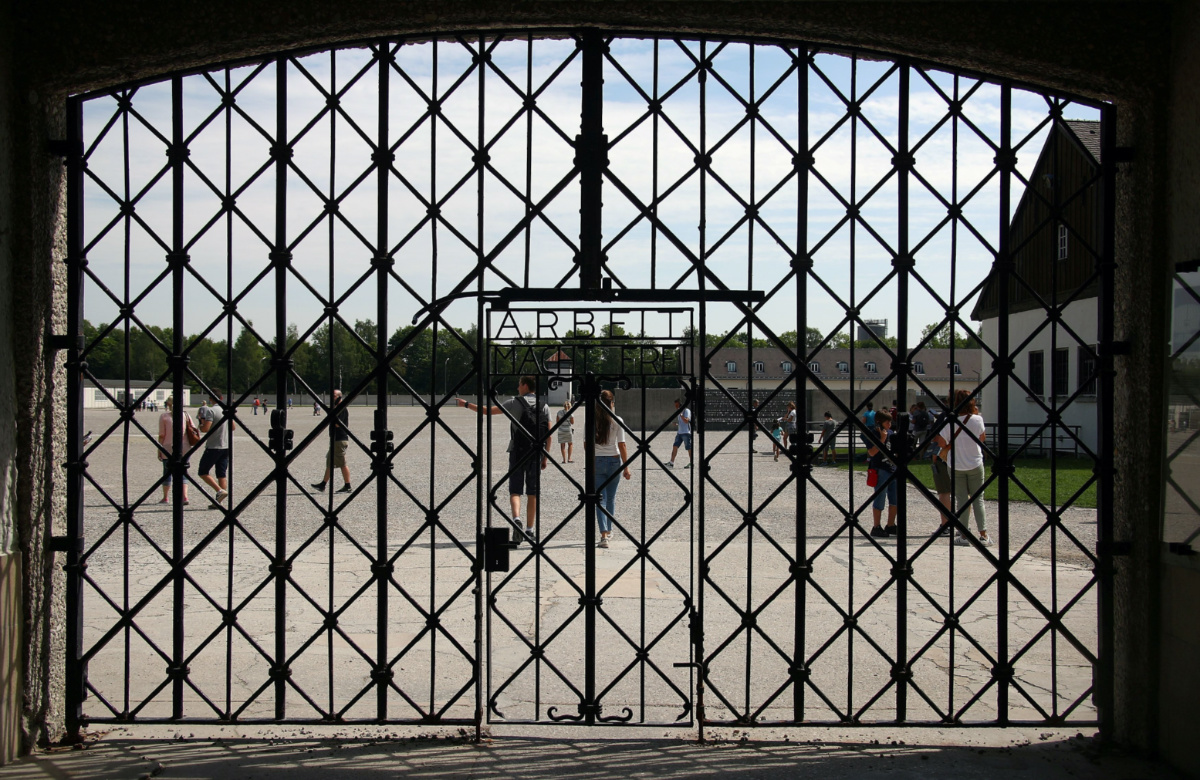Vatican City
Reuters
Pope Francis will canonise Titus Brandsma, a Dutch priest, academic and journalist who was murdered in the Dachau concentration camp in 1942 for preaching against the Nazis, the Vatican said on Thursday.
Brandsma, who was a member of the Carmelite religious order and served as president of the Catholic university at Nijmegen, began speaking out against Nazi ideology even before World War II and the German invasion of the Netherlands in 1940.

The entrance of the former German Nazi concentration camp in Dachau near Munich, Germany, on 18th August, 2017. PICTURE: Reuters/Michael Dalder/File photo
During the Nazi occupation, he spoke out against anti-Jewish laws. As adviser to the Netherlands’ Catholic newspapers, he urged their editors not to print Nazi propaganda.
He was arrested in 1942 and held in Dutch jails before being taken to Dachau, near Munich, where he was subjected to biological experimentation and killed by lethal injection the same year at the age of 61.
The Vatican said Francis had approved a decree attributing a miracle to the intercession of Brandsma, who was beatified – or declared ‘blessed’ – by Pope John Paul II in 1985.
The Roman Catholic Church teaches that only God performs miracles, but that saints who are believed to be with God in heaven intercede on behalf of people who pray to them.
Miracles usually are a medically inexplicable healing. Details of the miracle were not disclosed and no date was set for the canonisation ceremony.
Several other Catholics killed in Nazi concentration camps have already been declared saints. They include Polish priest Maximilian Kolbe and Sister Edith Stein, a German nun who converted from Judaism. Both were killed in the Auschwitz camp in Nazi-occupied Poland.
Meanwhile, the Pope has also declared five Catholic priests who were killed during the Paris Commune revolutionary government that took control of Paris in 1871 were martyrs who were killed out of “hatred for the faith”.
The martyrdom declaration means that the five priests can be beatified, the first big step toward possible canonisation, without the Vatican having to confirm a miracle attributed to their intercession.
In announcing Francis’ decree Thursday, the Vatican identified only two of the priests: Enrico Planchart and Ladislao Radigue. The other three priests were from two other religious orders. They were all killed on 26th May, 1871, in Paris.
The Paris Commune was hostile to the Catholic Church, which it accused of “complicity in the crimes of the monarchy.” It confiscated church funds, seized church property, and arrested hundreds of priests, nuns and monks.
Despite only governing for two months the Commune was highly influential – notably separating church and state, a policy that exists today in another form. During that time some 26 churches were closed and many Catholic schools forced to become secular.
When the national French army seized back control, the Communards, as they were known, shot many priests and the Archbishop of Paris in retaliation during what became known as The Bloody Week.
– With AP





